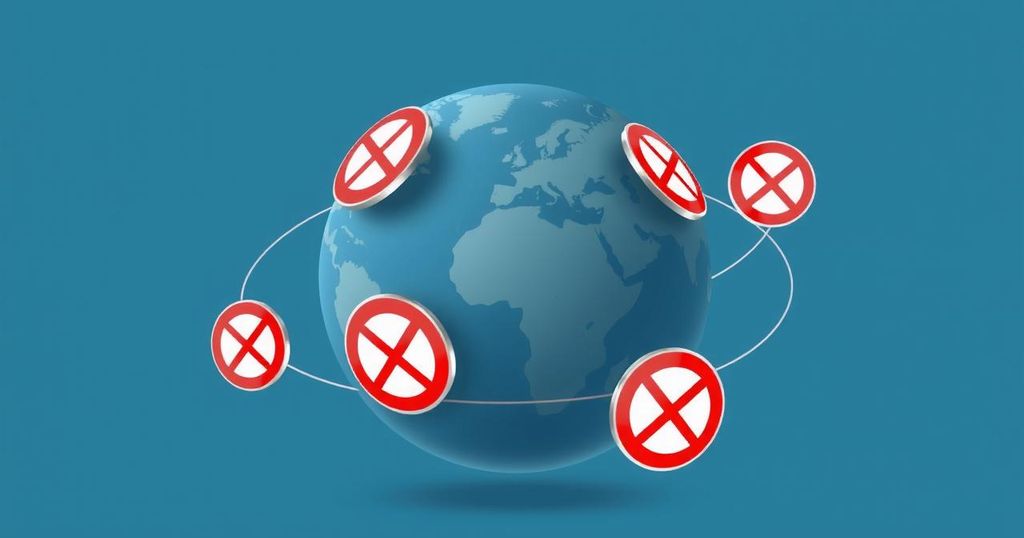Trump Bans Haitian Nationals, Limits Entry for Cubans and Venezuelans Amid Immigration Crackdown

Trump announced a total travel ban on Haitian nationals and partial restrictions on Cubans and Venezuelans, effective June 9. The proclamation emphasizes national security concerns but faces widespread criticism as many fear it targets vulnerable groups. The move has drawn ire from human rights advocates who see it as a continuation of xenophobic policies under Trump’s administration.
In a move that has drawn sharp criticism, President Donald Trump announced on Wednesday a complete ban on the entry of Haitian nationals into the United States, coupled with partial travel restrictions on individuals from Cuba and Venezuela. This travel ban will take effect on June 9 and is part of a broader immigration crackdown targeting several nations with significant ties to the U.S.
The new policy, as laid out in a proclamation from the White House, “fully restricts and limits the entry” of Haitian nationals while only partially doing so for Cubans and Venezuelans. This announcement underscores the Trump administration’s ongoing efforts to limit immigration from these countries, particularly in response to concerns over insufficient vetting and screening processes.
Starting June 9, most immigrant and non-immigrant visas will be suspended for Cubans and Venezuelans. Nationals of these countries aiming to enter the U.S. for reasons such as tourism, business, or studying will be barred from entry, marking a significant reduction in legal pathways. For Haitians, the restrictions are even tougher, with a complete ban on entry.
Notably, this travel ban does not apply to individuals who already hold valid visas. Nonetheless, it has created a wave of anxiety among families with ties to the affected nations, particularly those relying on visiting relatives or maintaining business connections in the United States.
In addition to Haiti, Cuba, and Venezuela, the proclamation targets other nations including Afghanistan, Iran, Libya, and Sudan among others, marking an extensive reach of the administration’s immigration policies. The exceptions outlined in the proclamation include green card holders and certain immediate family members of U.S. citizens. However, citizens hoping to bring older children and siblings from these countries face significant hurdles due to the new restrictions.
“The United States must be vigilant during the visa-issuance process to ensure that those aliens approved for admission into the United States do not intend to harm Americans or our national interests,” stated Trump in the proclamation. Reevaluations of these bans will occur every six months moving forward.
The response from human rights advocates and community leaders has been one of disbelief and anger. Brian Concannon, of the Institute for Justice and Democracy, criticized the targeting of Haiti, saying it “provides no protection to U.S. national security” and labels the approach as a series of “transparently racist attacks” against Haitians.
Trump contended that the reintroduction of such bans is necessary to mitigate potential threats from countries unable to effectively manage travel documentation. Specifically, Cuba was labeled a state sponsor of terrorism, implying that its government is uncooperative in law enforcement, while Venezuela was described as lacking a competent authority.
Independent reports suggest that contrary to the claims, thousands of Venezuelans have been deported back to the country, challenging the notion that deportations are being actively resisted. The ongoing diplomatic standoff between the U.S. and Venezuela exacerbates the situation as there have been no visas issued in Havana since late 2017 for visitors, placing more pressure on applicants from Cuba.
Amid the unfolding situations in both countries, community leaders such as Pierre Imbert highlighted the essential role of travel access in supporting families and businesses across borders, emphasizing the ban’s impact on those who act as crucial support networks. He lamented the end of the humanitarian parole program initiated under the previous administration, which had allowed more flexible entry for Haitian nationals.
Critics continue to express concern regarding claims that these countries pose national security threats, especially when considering the U.S. government’s past involvement in arms distribution that has fueled violence and instability in Haiti. Advocates from various immigrant organizations have condemned this latest proclamation, framing it as a continuation of harmful, divisive policies.
This announcement follows a broader trend, as the Supreme Court recently authorized Trump to halt a Biden-era program that supported legal residency for over half a million immigrants from previously described nations. With the termination of Temporary Protected Status for Venezuelans, the clamp down seems poised to intensify, leaving many uncertain about their futures.
As immigration advocates prepare for the implications of this ban, they emphasize the enduring humanitarian crises unfolding in these nations. They argue that the travel restrictions exacerbate vulnerabilities and hinder reunification efforts for families awaiting U.S. entry.
President Trump’s proclamation has ushered in a new round of stringent travel bans for nationals from Haiti, Cuba, and Venezuela, taking effect on June 9. This decision draws on concerns surrounding terrorism and crime, but critics argue it perpetuates a narrative of racism and discrimination against vulnerable populations. Amid a backdrop of humanitarian crises and U.S. policy contradictions, the impact on families and communities will likely be profound, with many unsure of their future in the U.S.
Original Source: www.yahoo.com






